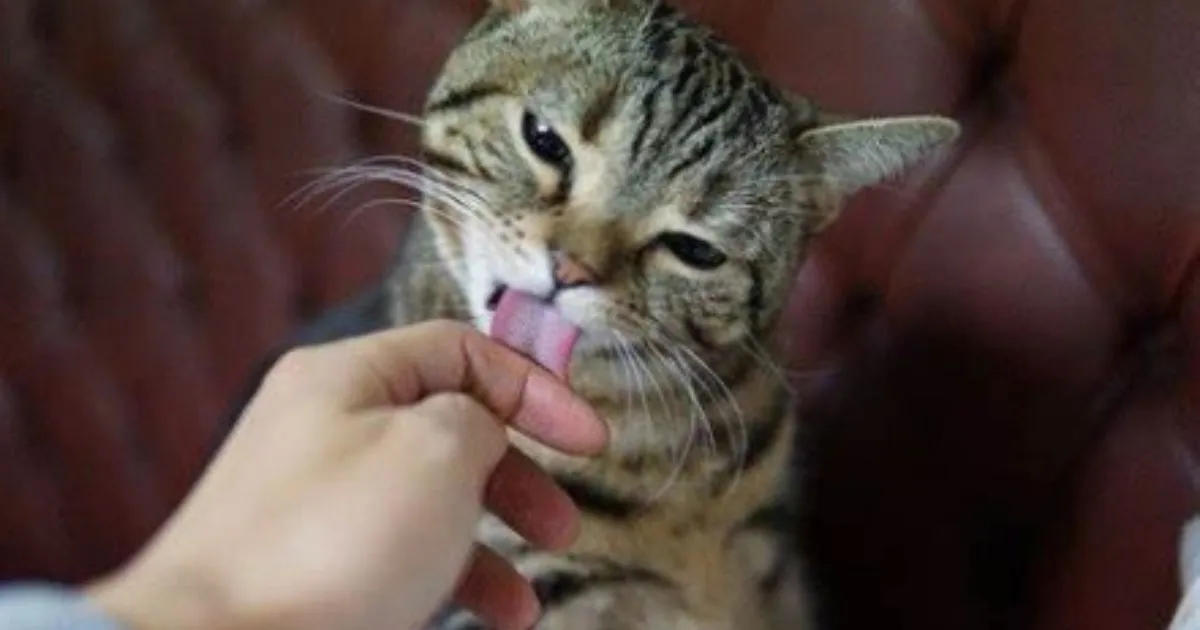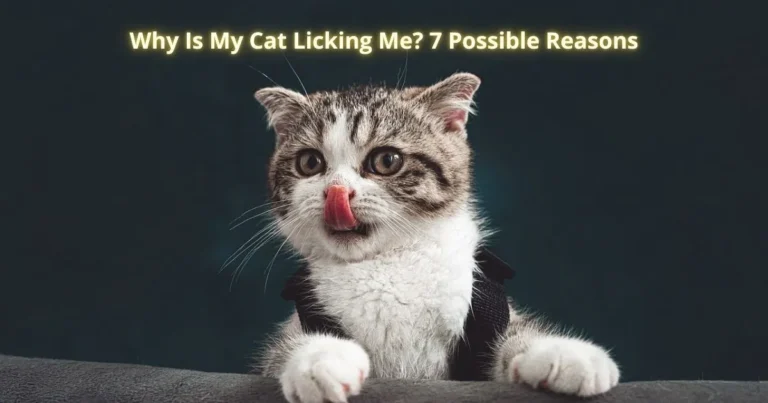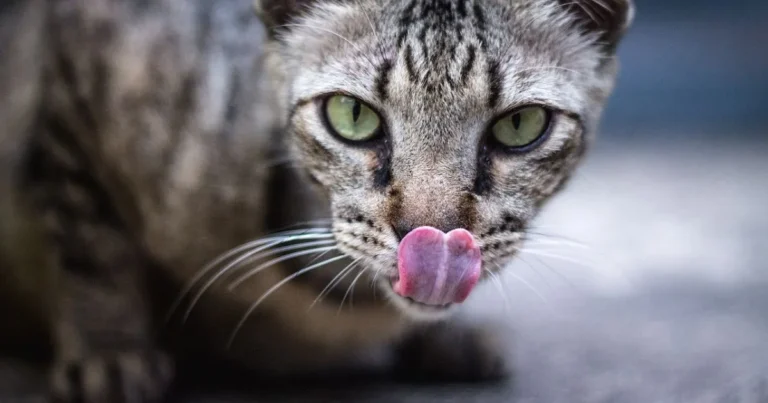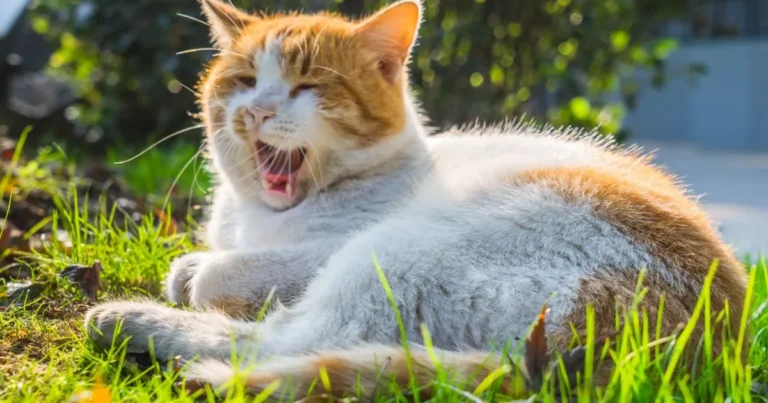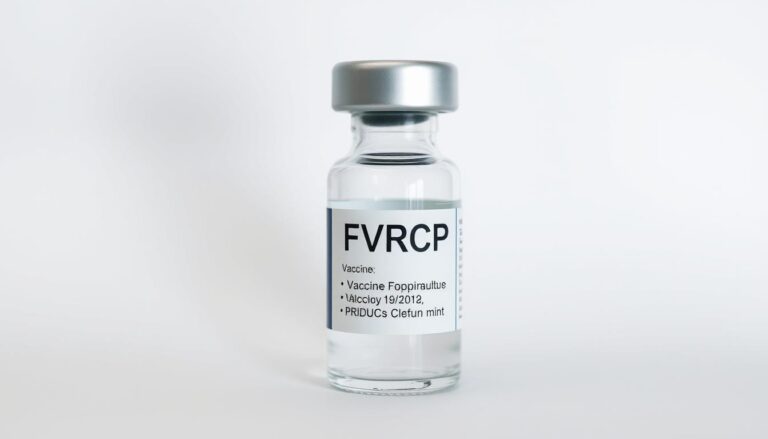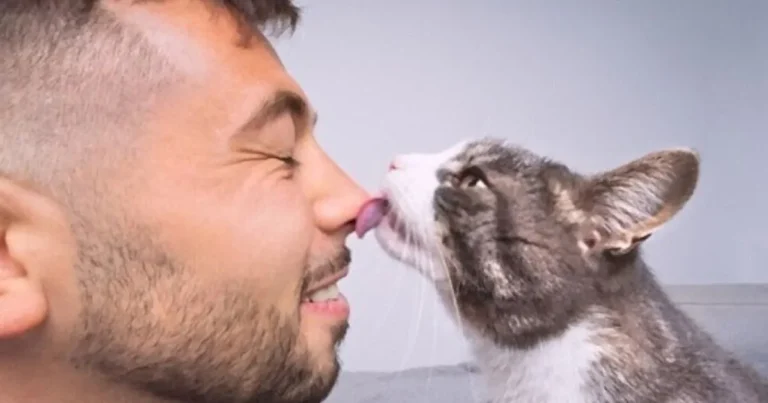Why Does My Cat Keep Licking Me? Explained by Experts
Table of Contents
Why Does My Cat Keep Licking Me?
Every time I sit down, my furry companion turns into a dedicated grooming expert. They shower me with rough-textured licks that feel both weird and wonderfully affectionate. If you’ve ever wondered why your cat keeps licking you, you’re not alone.
Cats are incredible creatures with complex social interactions. Their tongues, covered in tiny backward-facing barbs called papillae, are designed for meticulous grooming. When your cat decides to lick you repeatedly, they’re doing much more than just cleaning – they’re communicating deep emotional messages that trace back to their earliest social experiences.
Understanding why your cat keeps licking you can unlock insights into their world. From marking territory to expressing affection, each lick tells a story. This comprehensive guide will explore the intricate reasons behind cat licking behavior, helping you decode your feline friend’s unique language of love and connection.
Understanding Cat Licking Behavior: A Natural Instinct
Cat grooming is more than just cleaning. It’s a complex system of self-care. Their licking behavior is rooted in biology and evolution.
The Fascinating World of Papillae
A cat’s tongue is amazing for grooming. It has tiny, backward-facing structures called papillae. These hooks help in several ways:
- Removing dirt and debris from fur
- Detangling hair strands
- Distributing natural oils across the coat
- Regulating body temperature
Time Dedicated to Grooming
Cats spend a lot of time on grooming. It’s a big part of their daily routine. Here’s how much time they dedicate:
| Cat Type | Daily Grooming Time | Purpose |
|---|---|---|
| Domestic Cats | 30-50% of waking hours | Hygiene and stress relief |
| Wild Cats | 20-40% of waking hours | Survival and camouflage |
Evolutionary Roots of Grooming
Grooming is not just about being clean. It’s a survival strategy. Cats have evolved this behavior to stay healthy, connect with others, and protect themselves from predators.
Why Does My Cat Keep Licking Me: Common Reasons Explained
Cat licking is a fascinating way for cats to communicate. It shows a lot about their emotional state and what they want. Knowing why your cat licks you can help you understand them better.
Cats lick for many reasons:
- Showing Affection: Your cat might lick you to show love, just like they do with their feline friends.
- Seeking Attention: Licking can be a way for cats to get your attention and play.
- Marking Territory: Cats spread their scent by licking, making you part of their group.
- Taste Exploration: Your skin’s salt, lotion, or food might attract your cat’s curiosity.
Each lick has a special meaning in your cat’s language. Veterinary behaviorists suggest it comes from kittenhood. Back then, licking meant comfort, safety, and friendship.
Some cats lick more because of their personality or experiences. Stress, anxiety, or a strong need for connection can make them lick more.
Cats don’t just lick randomly—each lick is a nuanced expression of their inner world.
Social Bonding and Affection Through Licking
Cats show love in many ways, including through licking. This act is more than just a simple touch. It’s a deep way to show affection and connect with others. When your cat licks you, it’s a special moment that shows they feel close to you.
The Roots of Feline Affection
Kittens learn to show love through licking from their mothers. This early lesson teaches them that grooming is a way to feel safe and loved. It becomes a key way for cats to express their feelings and connect with others.
- Grooming shows trust and closeness
- Cats learn social skills by licking each other
- Licking makes both cats and humans feel calm
Community Connections Through Grooming
In cat groups, allogrooming is very important. Cats groom each other to show who’s in charge and to relax. This also happens with humans, showing they feel safe and loved.
Building Trust with Your Feline Friend
When your cat licks you, it means they see you as family. This act shows a strong bond and is a true sign of love. Understanding these rituals helps you see the deep emotions your cat feels for you.
Territory Marking and Ownership Claims
Cats are experts at talking to each other, and they have special ways to show they own something. When your cat licks you, it’s more than just a sign of love. It’s a way for them to tell other animals that you’re theirs.
Cats have many ways to mark their territory and show they own it. These methods include more than just licking. They also use:
- Cheek rubbing against you or objects
- Scratching specific surfaces
- Spraying with scent markers
- Kneading with their paws
- Persistent licking
Licking is a strong way for cats to mark their territory. When your cat licks you, they’re saying “this human is mine.” They leave their scent on you, which other animals can smell. This makes a strong claim of ownership.
This behavior comes from their wild ancestors. They needed to show who was in charge and set boundaries. By licking you, your cat is showing a strong instinct to protect and claim what’s theirs.
Knowing how cats communicate helps us understand their world better. Their licking is not just a random act. It’s a message of belonging and protection.
Stress and Anxiety-Related Licking Behaviors
Cats show their feelings in special ways. Excessive licking can mean they’re stressed or anxious. Knowing this helps you care for their mental health.
Cat anxiety shows up in many ways, like too much licking. When they’re stressed, they groom themselves to feel better.
Environmental Triggers
Many things can make cats anxious and lead to licking:
- Sudden changes in household routine
- Introduction of new pets or family members
- Loud noises or construction
- Restricted movement or space
- Lack of predictable environment
Signs of Excessive Licking
It’s important to spot when licking gets too much. Look out for these signs:
| Behavior | Potential Indication |
|---|---|
| Constant grooming | High stress levels |
| Bald patches | Compulsive licking |
| Skin irritation | Anxiety-driven behavior |
Coping Mechanisms in Cats
Here are ways to help your cat deal with anxiety:
- Create a consistent daily routine
- Provide safe, quiet spaces
- Use pheromone diffusers
- Engage in regular play sessions
- Consider consulting a veterinary behaviorist
*”Understanding your cat’s emotional landscape is key to addressing stress-related behaviors.”*
By spotting cat anxiety and dealing with licking early, you can make your cat feel safer and calmer.
When Cat Licking Becomes Concerning
Cat licking is usually normal, but too much of it can mean there’s a health problem. It’s important to know when your cat’s licking is just grooming and when it’s a sign of something more serious.
Signs of compulsive licking could mean your cat has a medical or psychological issue. Look out for these signs:
- Licking the same spot repeatedly
- Hair loss or skin irritation
- Changes in skin texture or color
- Apparent discomfort during grooming
Excessive cat licking can be caused by many things, like:
- Allergic reactions
- Skin infections
- Parasitic infestations
- Anxiety or stress
If your cat’s licking is too much or different, see a vet. A vet can check if there’s a serious health issue that needs treatment.
Watching your cat’s grooming habits closely can help spot health problems early. This way, you can keep your cat happy and healthy.
The Health Implications of Cat Licking
Cat licking might seem harmless, but it carries potential health risks. Every pet owner should understand these risks. Your cat’s mouth is home to various bacteria that could impact both feline and human health. Knowing these cat health indicators can help protect you and your furry friend.
While cats are meticulous groomers, their saliva contains microorganisms that might cause infections. Your cat’s behavior during licking can reveal important health signals you shouldn’t ignore.
Bacterial Concerns in Cat Saliva
Cat saliva contains several potentially harmful bacteria, including:
- Pasteurella multocida
- Bartonella henselae (Cat Scratch Fever)
- Various oral bacteria
These microorganisms can pose significant risks, especially if you have:
- Open wounds
- Compromised immune systems
- Chronic health conditions
When to Consult a Veterinarian
Pay attention to these cat health indicators that might suggest a veterinary consultation:
- Excessive licking beyond normal grooming
- Changes in cat behavior during licking
- Visible signs of oral discomfort
- Unusual saliva consistency
Always wash your hands after cat interactions and avoid letting your cat lick open wounds or sensitive areas. If you notice persistent unusual licking patterns, schedule a professional veterinary check-up to ensure your cat’s optimal health.
How to Redirect Excessive Licking Behavior
Dealing with a cat that licks too much needs patience and smart cat care. Cats use licking to talk to us, but it can get too much. Learning how to stop this is key to a good bond with your cat.
Here are some ways to handle cat behavior well:
- Provide engaging alternative activities
- Create calm environmental conditions
- Use positive reinforcement techniques
- Implement consistent interaction patterns
Stopping excessive licking is easier with distraction. If your cat starts licking too much, try these steps:
- Gently move away from the cat
- Offer interactive toys
- Initiate playtime
- Use treats as redirection
| Licking Trigger | Recommended Response |
|---|---|
| Stress-induced licking | Create quiet spaces |
| Attention-seeking behavior | Schedule regular play sessions |
| Anxiety-related licking | Use calming pheromone diffusers |
Professional vets say gentle, consistent redirection changes cat behavior without stress. Knowing your cat’s needs and staying calm helps a lot. It makes your time together better and cuts down on too much licking.
Managing Your Cat’s Licking Habits
Understanding your cat’s licking behavior is key to good cat care. If your cat licks too much, you need to find ways to stop it. This helps keep your cat healthy and happy.
Creating a calm space is important. Here are some tips:
- Make a daily routine for your cat
- Give them toys to keep their mind busy
- Use calming pheromone diffusers at home
- Set up quiet areas for them to relax
Experts say there are ways to stop your cat from licking too much:
- Find out what makes them anxious
- Use positive rewards to encourage good behavior
- Keep them busy with fun activities
- Take them to the vet regularly
There are products that can help calm your cat. Think about:
- Weighted cat blankets
- Interactive puzzle feeders
- Soft background noise machines
Every cat is different. Be patient and keep trying different things. With time and effort, you can manage your cat’s licking.
Conclusion
Cat licking shows a lot about your cat’s feelings. When you ask “why does my cat keep licking me,” it’s often a sign of love. This behavior comes from their natural instincts, shaped by their ancestors.
Your cat’s licking can mean different things. It might be about claiming territory, showing trust, or love. But, it’s important to watch how often and how hard they lick. Some cats lick too much because of stress, anxiety, or health issues.
Knowing what your cat’s licking means can make your bond stronger. It helps keep them happy and healthy. By understanding their signals, you can respond in a way that makes your relationship better. Always watch for changes in their behavior and talk to a vet if you see too much licking.
Cat licking is a special part of their behavior that shows their emotional side. Enjoy these moments of connection. But also, make sure to take care of their physical and emotional health.

